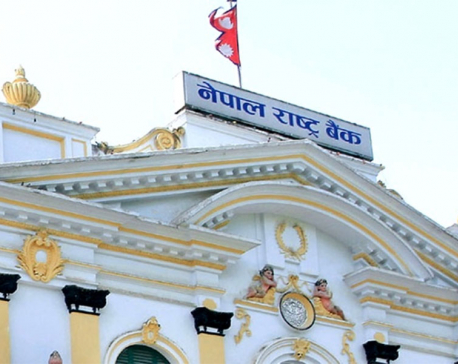
OR
NRB turns soft to private sector’s demand to amend the Working Capital Loan Guidelines
Published On: January 5, 2023 10:30 AM NPT By: Republica | @RepublicaNepal

KATHMANDU, Jan 5: Bowing to the pressure of the private sector, Nepal Rastra Bank (NRB) has amended the Working Capital Loan Guidelines 2022.
As per the revised rule, the entrepreneurs who took the working capital loans worth more than the threshold of Rs 10 million have been allowed to settle their outstanding dues by mid-July 2024/25. The private entrepreneurs are provided with flexibility to pay the loan amount in five equal installments in the prescribed time period.
Likewise, the BFIs can issue loans for fluctuating working capital needs for up to one year while the credit under the permanent working capital need can be issued for 3 to 10 years.
NRB Spokesperson Dr Gunakar Bhatta said that the central bank revised the rule to address the grievances of the private sector.
NRB on October 18 enforced the guidelines to tighten the noose on the loans being provided by the banks and financial institutions (BFIs) based on the working capital of private firms. Through the rule, NRB has maintained two slabs for the BFIs when they issue loans against the working capital. If a firm has an estimated transaction of Rs 20 million or less per year, it will be eligible to get loan only up to 20 percent of the turnover amount.
NRB has also capped the working capital loan for a big firm that has an estimated annual transaction of more than Rs 20 million. Based on the assessment of fluctuating working capital needs, the BFIs can issue a maximum of 25 percent of the annual transaction amount for the maturity period of up to one year.
However, the private sector had been demanding the NRB to scrap the guidelines since the new rule was enforced. After the central bank turned firm in its decision, the entrepreneurs of late have been demanding to defer the rule enforcement date by at least two years.
A working capital loan is a loan that is taken to finance the day-to-day operation of a company. These loans are not issued to buy long-term assets or investments. In this category, Nepali banks issue cash credit, short-term loans, import-export related loans and term loans.
The NRB has been arguing that the rule was enforced to stop the entrepreneurs from misusing the money provided as working capital loans. The private sector is suspected to be using such loan amounts for other purposes such as imports, investment in real estate business and stock market. “It was suspected to even promote hundi business,” said an official of the NRB.
The business community on the other hand said the provision was adversely affecting their businesses as it took a massive toll due to cash crunch.
You May Like This

NRB’s target to expand private sector lending of 11.5 percent this year likely to fall short
KATHMANDU, Feb 6: Nepal Rastra Bank (NRB) seems to have fallen behind in meeting its target of the banks’ lending... Read More...

NRB takes ‘cautious’ approach to fulfill demands of private sector
KATHMANDU, July 24: Nepal Rastra Bank (NRB) has been cautiously flexible towards the private sector through the monetary policy for... Read More...

Is NRB Directive on Working Capital Loan Private Sector-friendly?
The NRB has given two and a half years time to the borrowers who are using more than the limit... Read More...





Just In
- 104 houses gutted in fire in Matihani (With Photos)
- By-elections: Silence period starts from today, campaigning prohibited
- A Room of One's Own- Creative Writing Workshop for Queer Youth
- Tattva Farms rejuvenates Nepali kitchens with flavored jaggery
- Evidence-Based Policy Making in Nepal: Challenges and the Way Forward
- Insurers stop settling insurance claims after they fail to get subsidies from government
- Nepal-Qatar Relations: Prioritize promoting interests of Nepali migrant workers
- Health ministry to conduct ‘search and vaccinate’ campaign on May 13













Leave A Comment